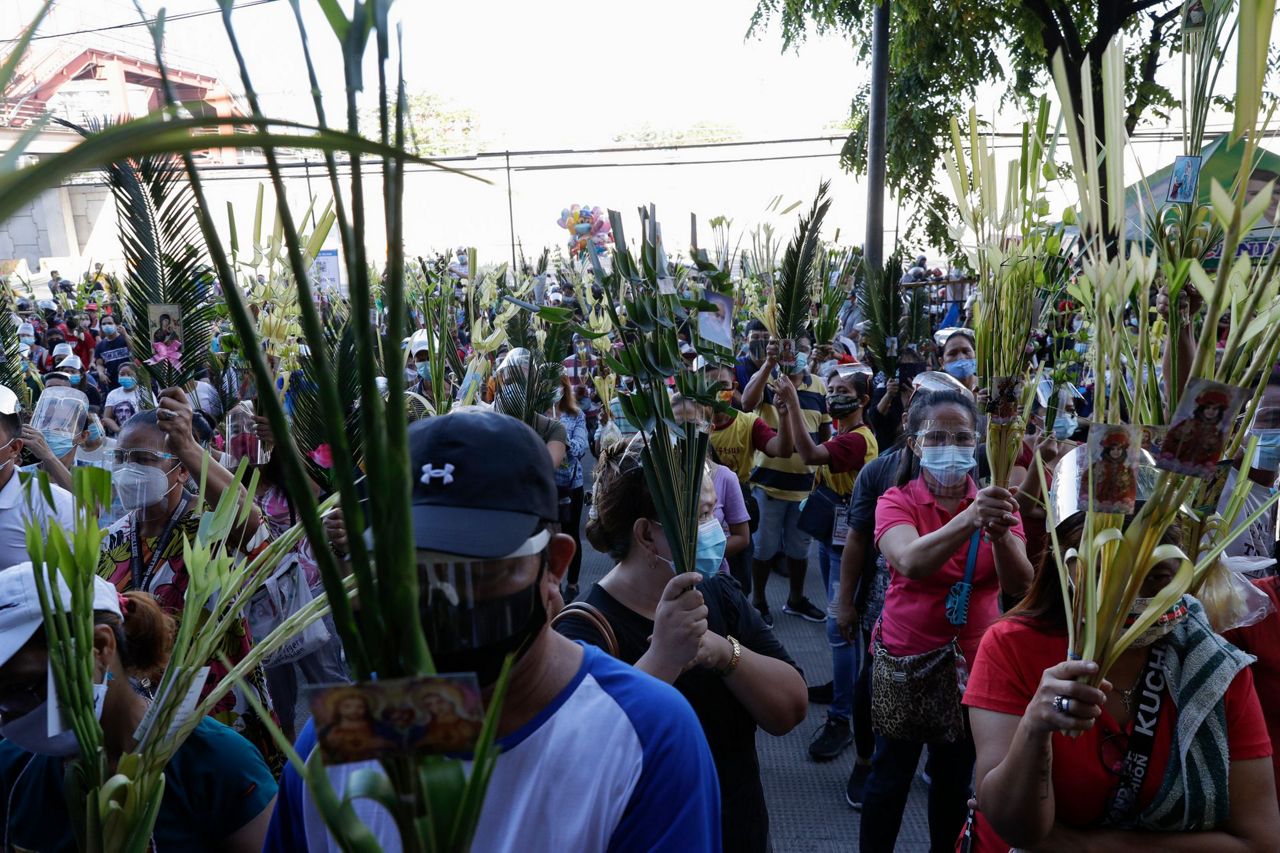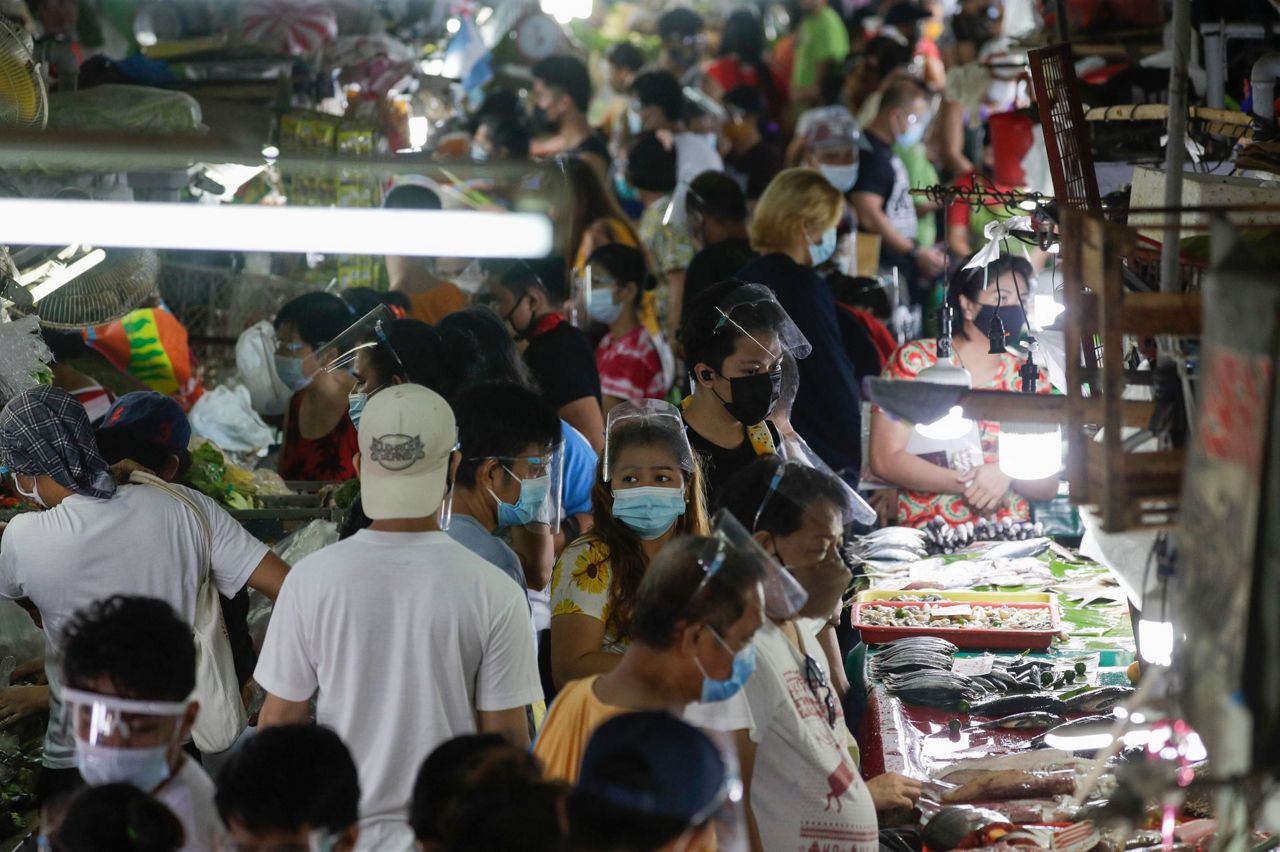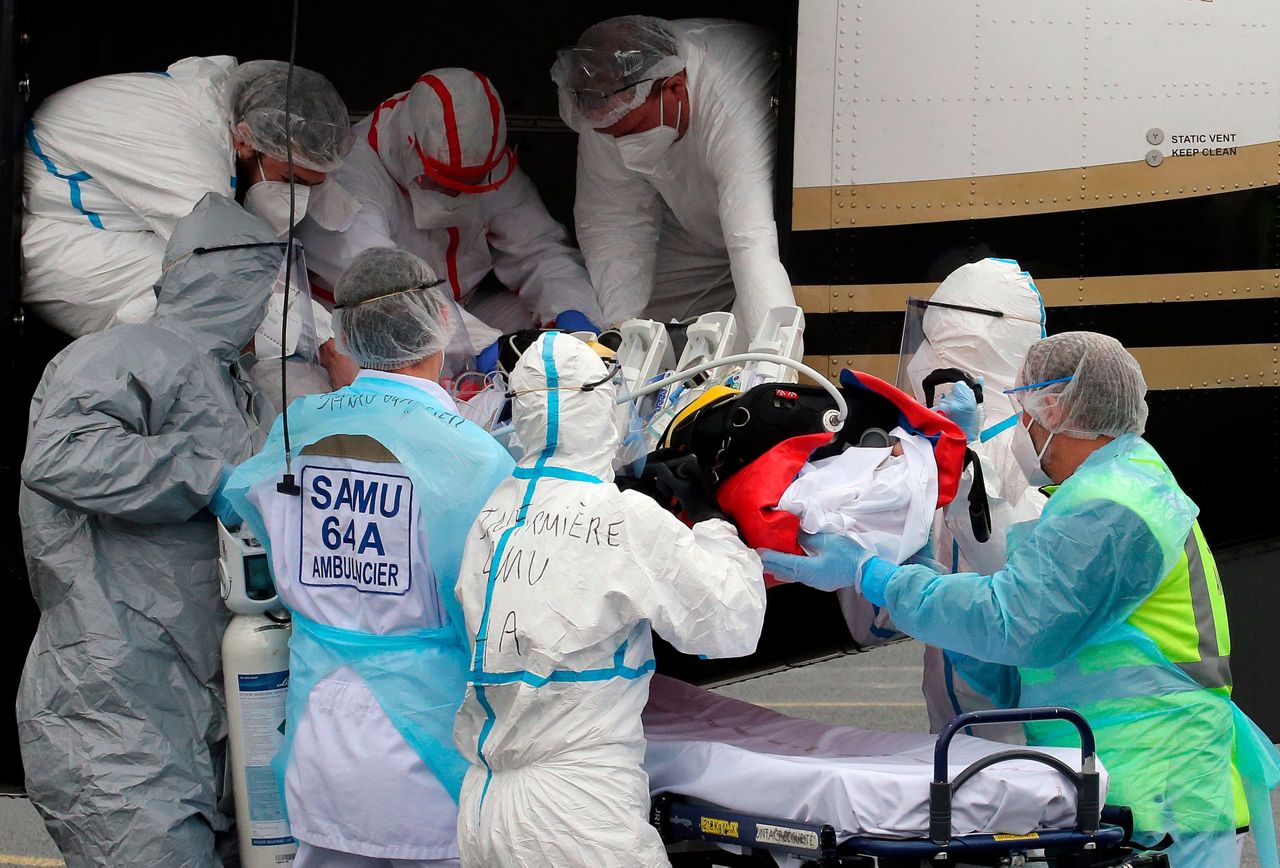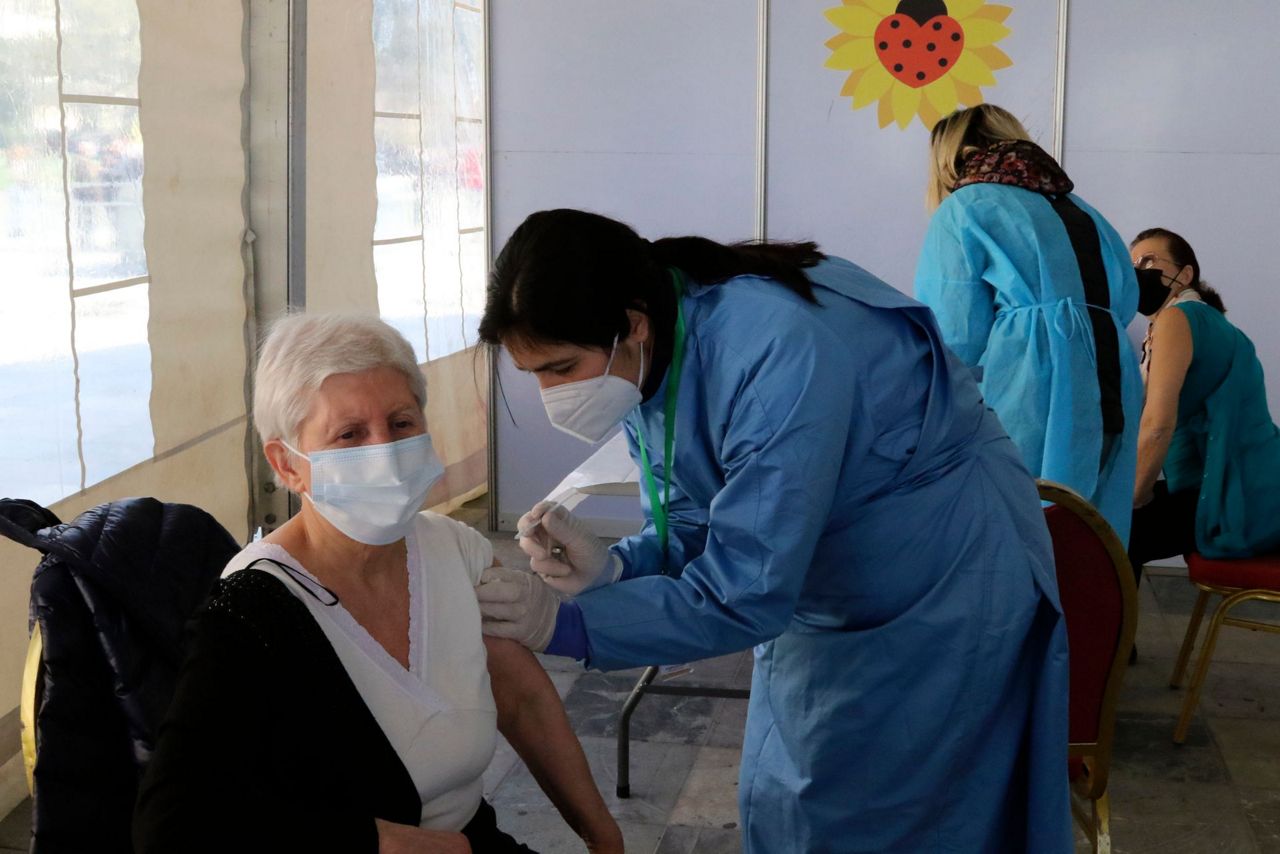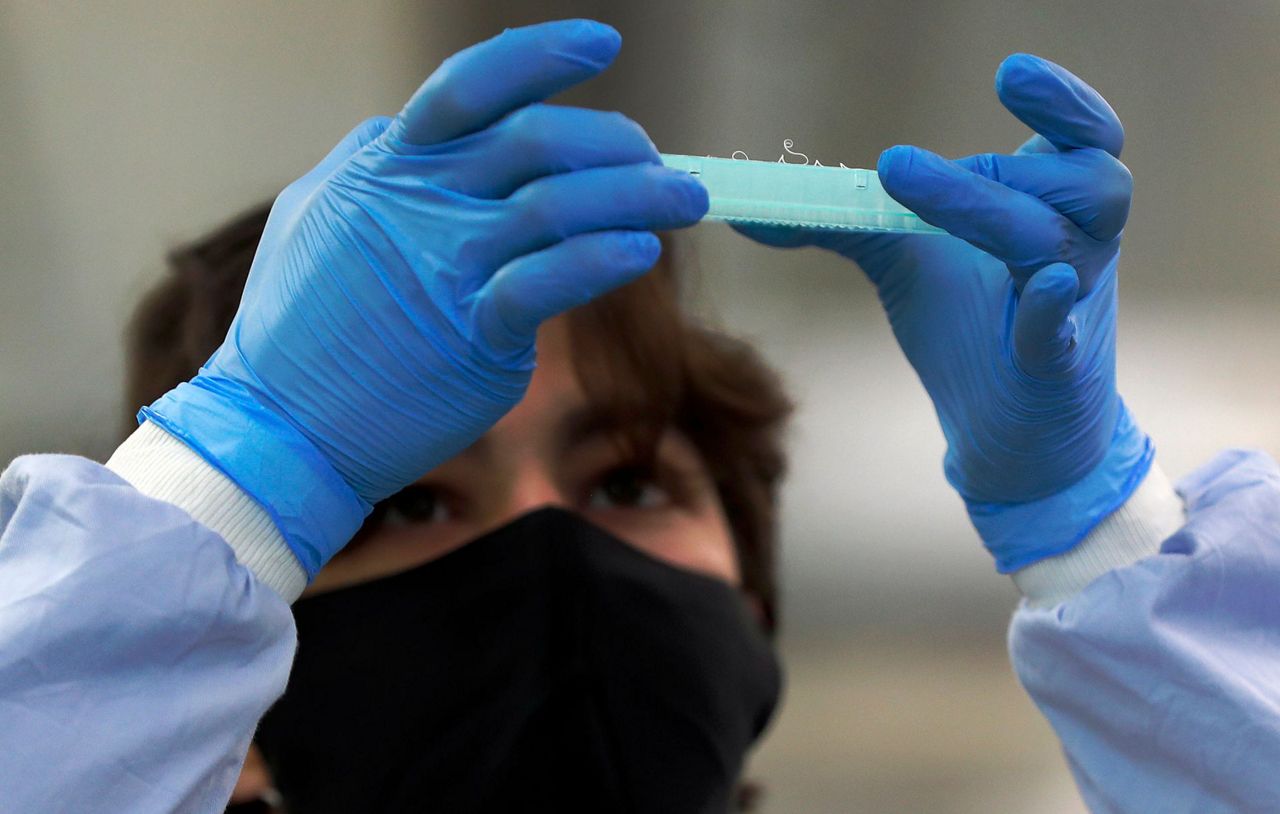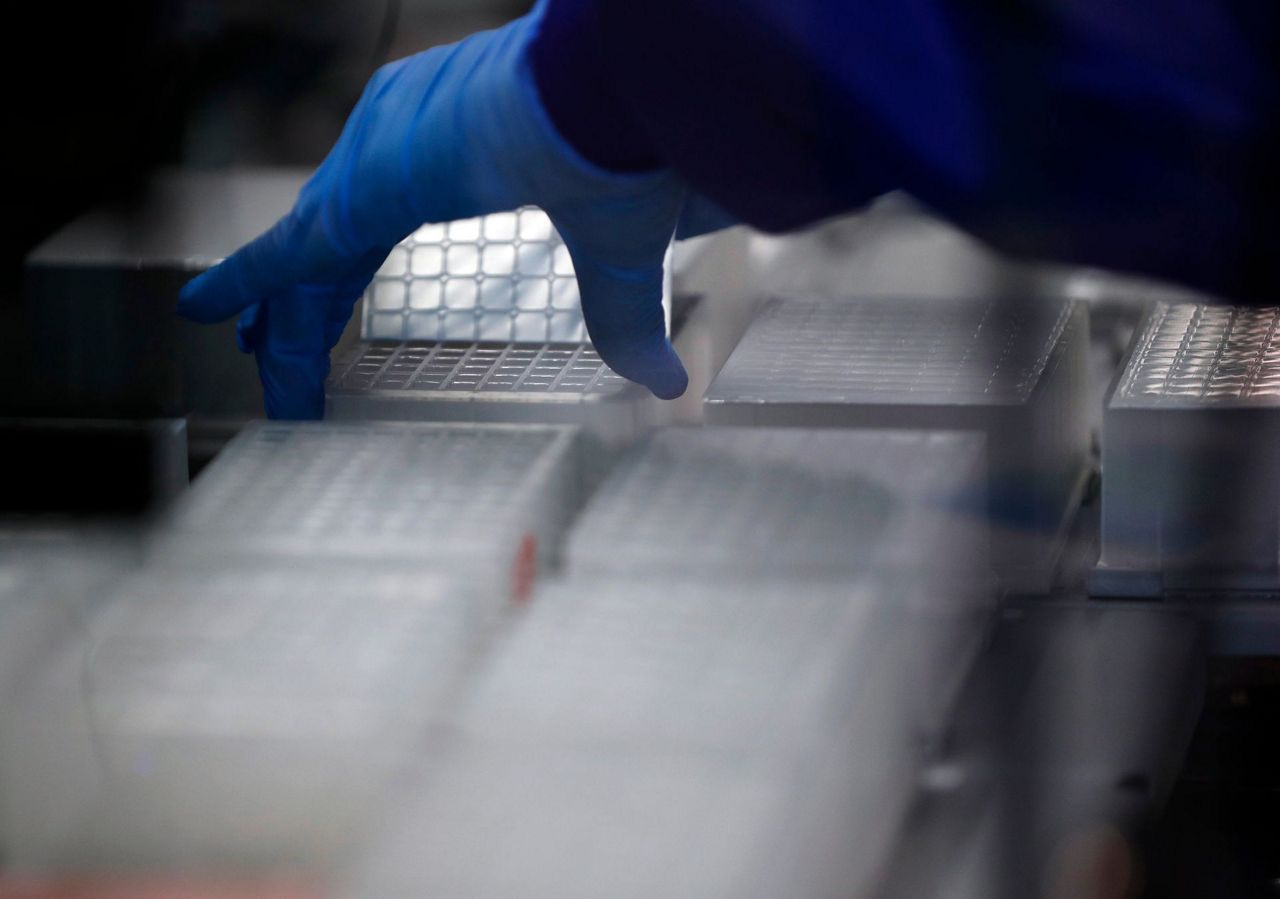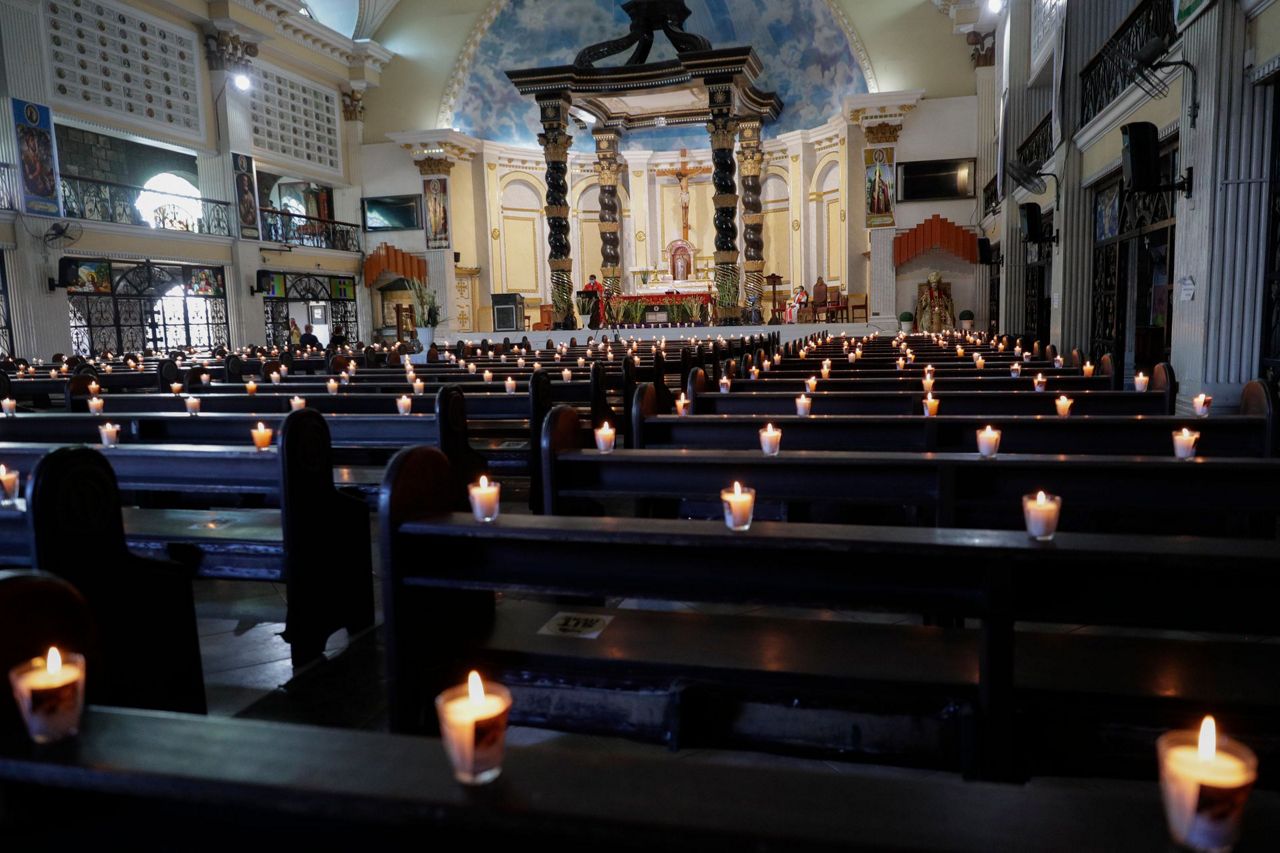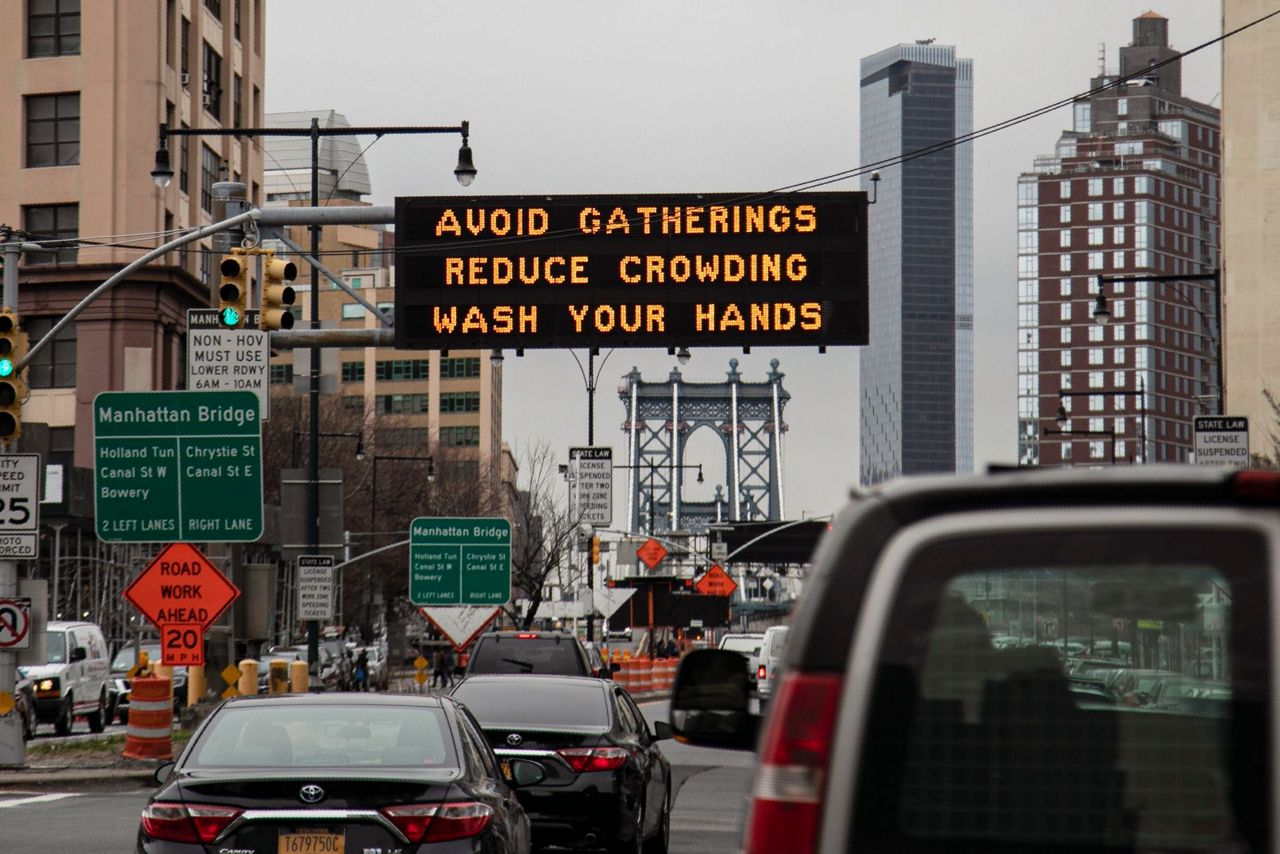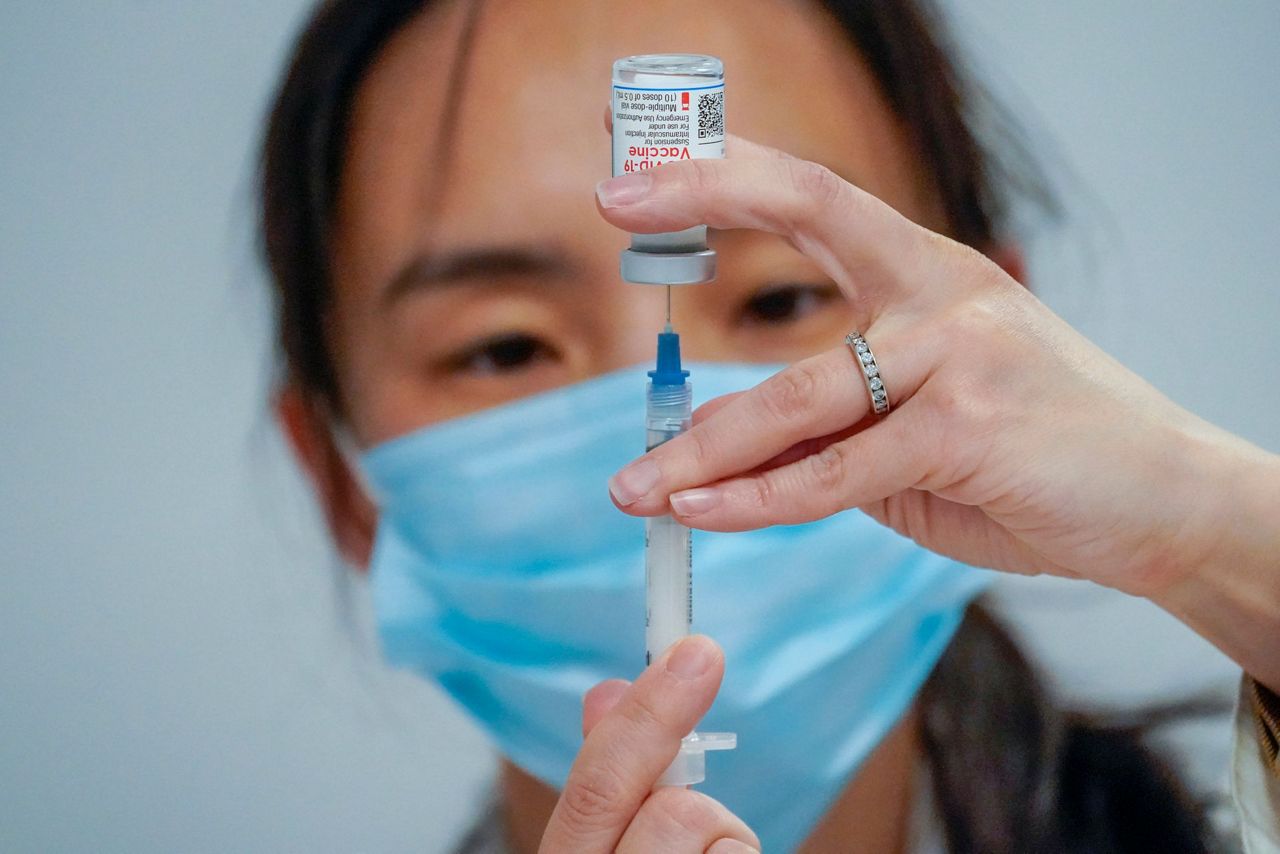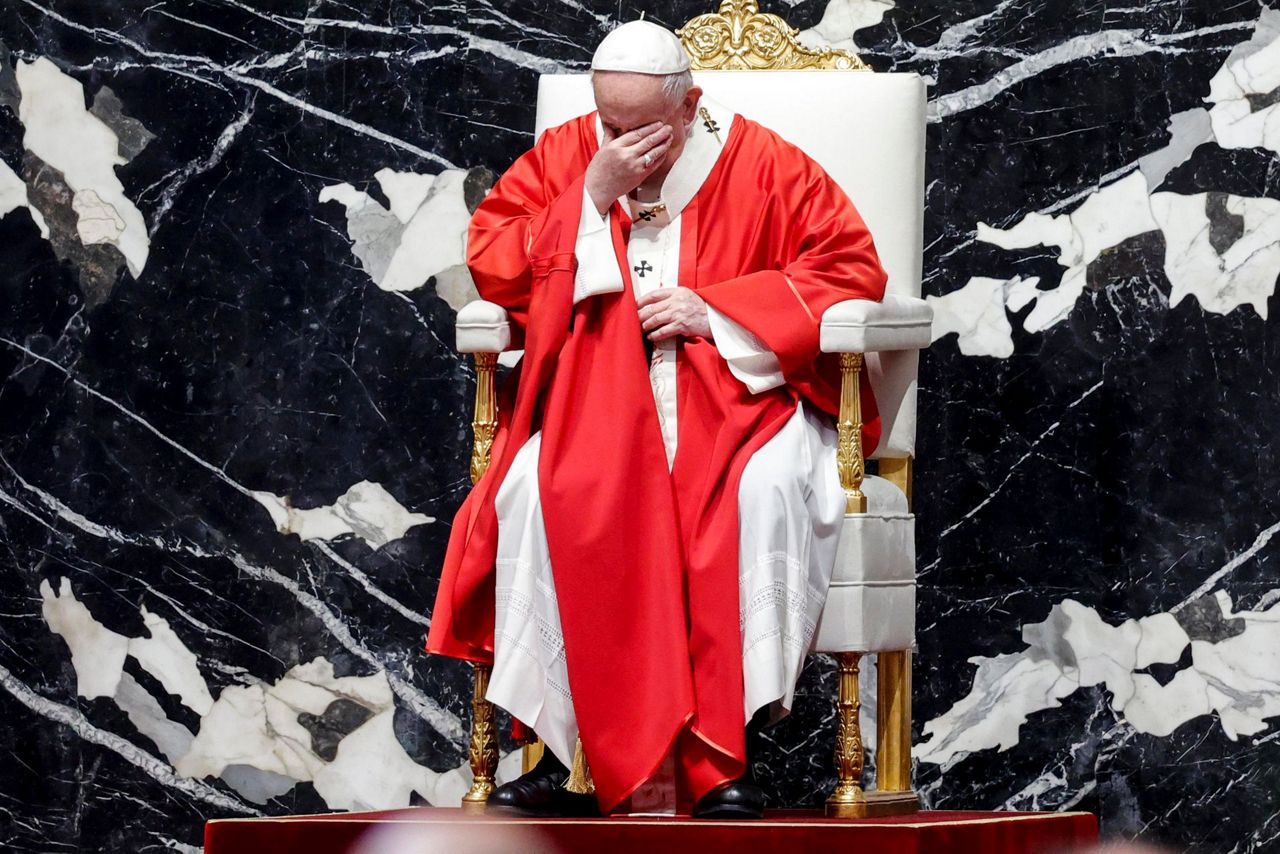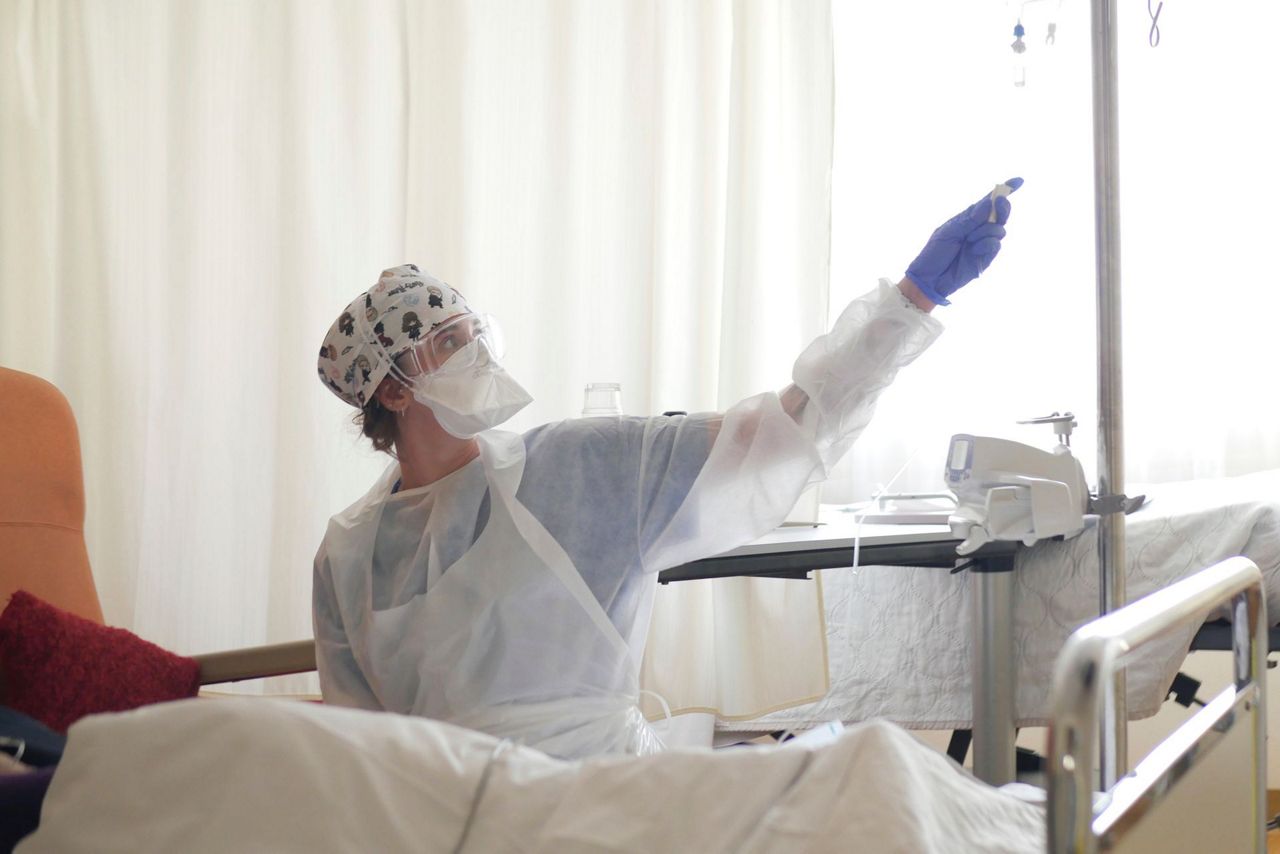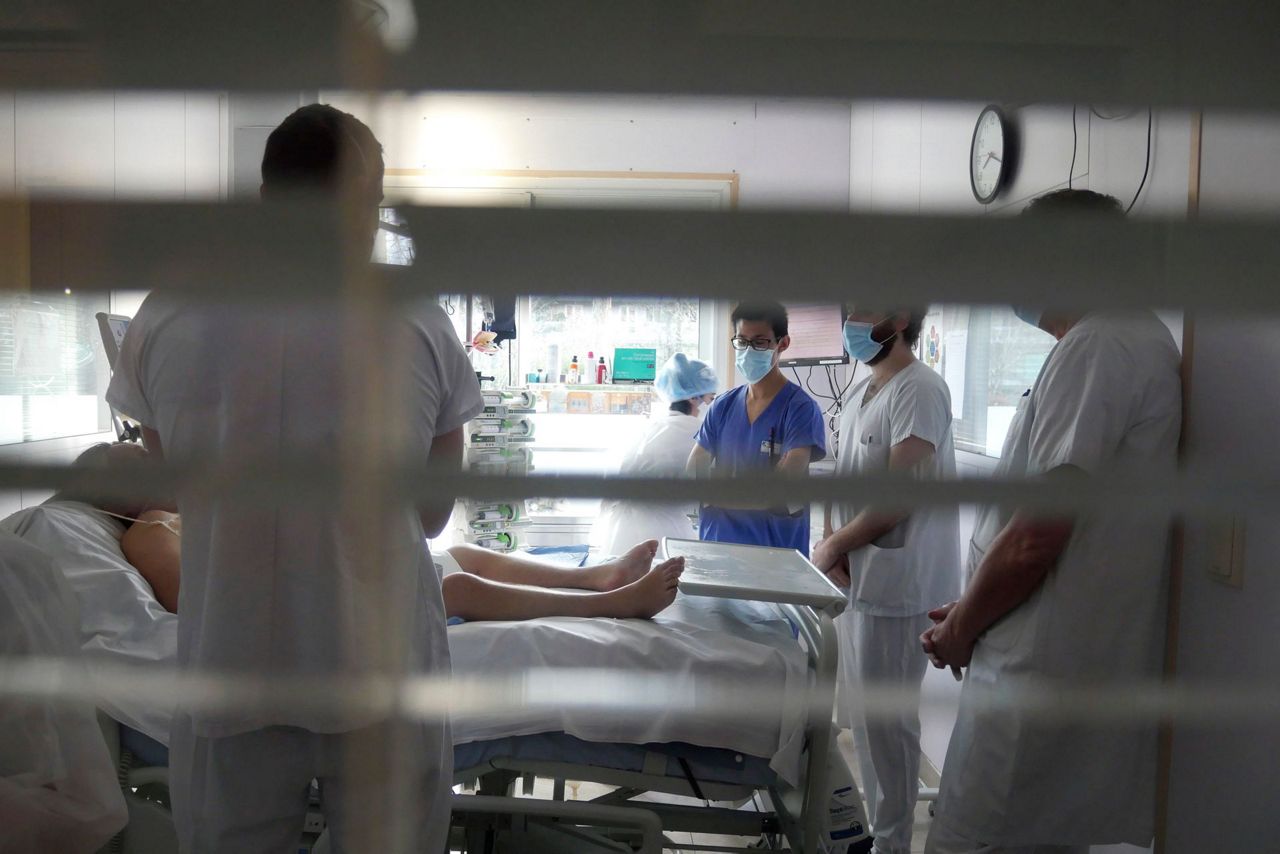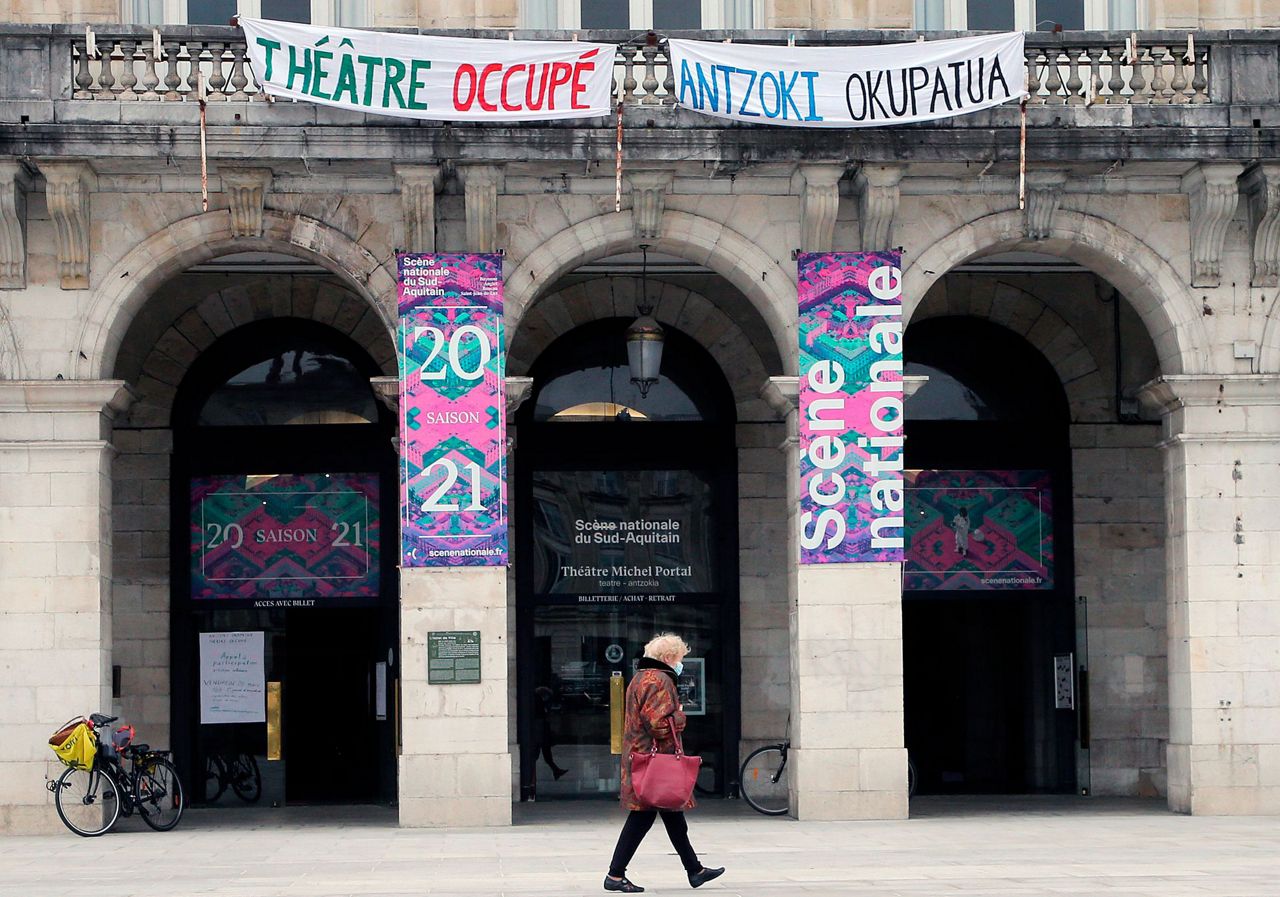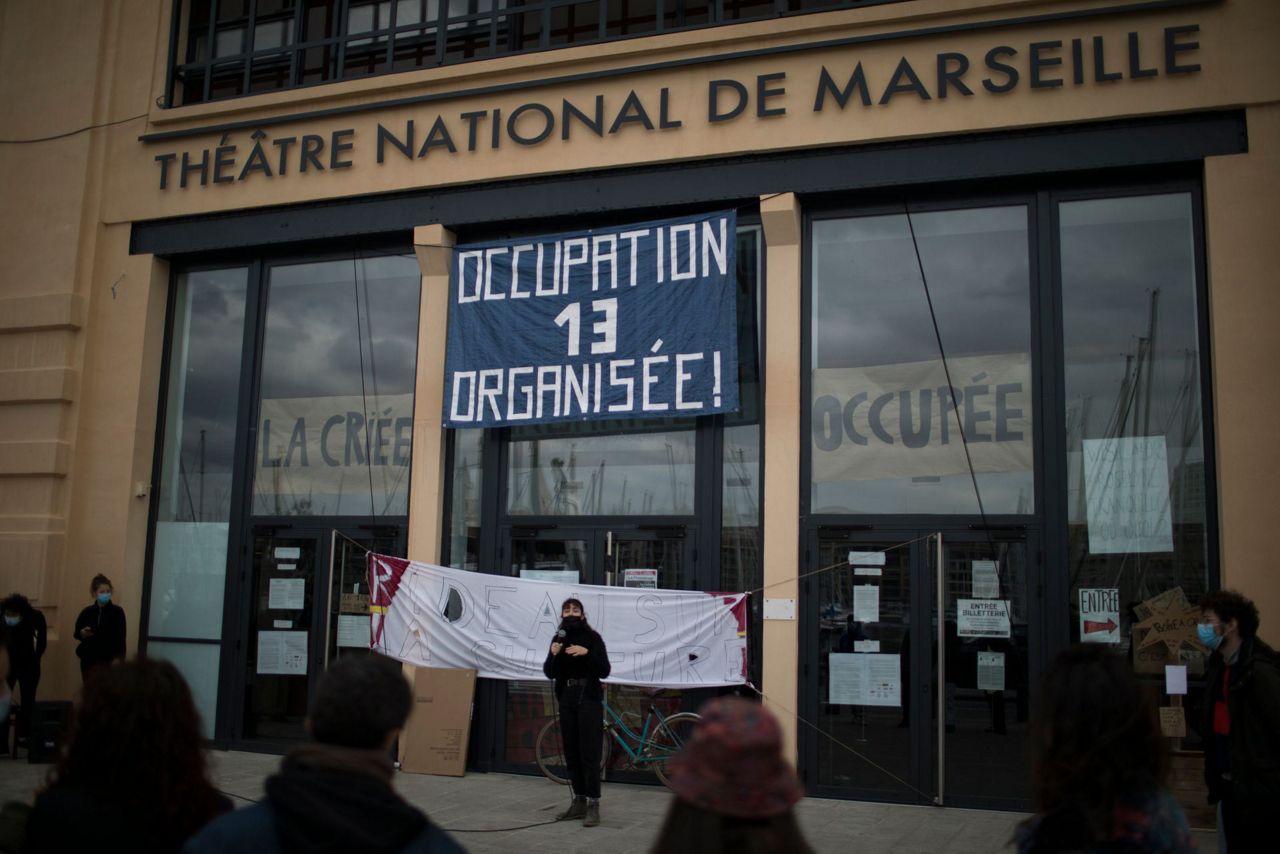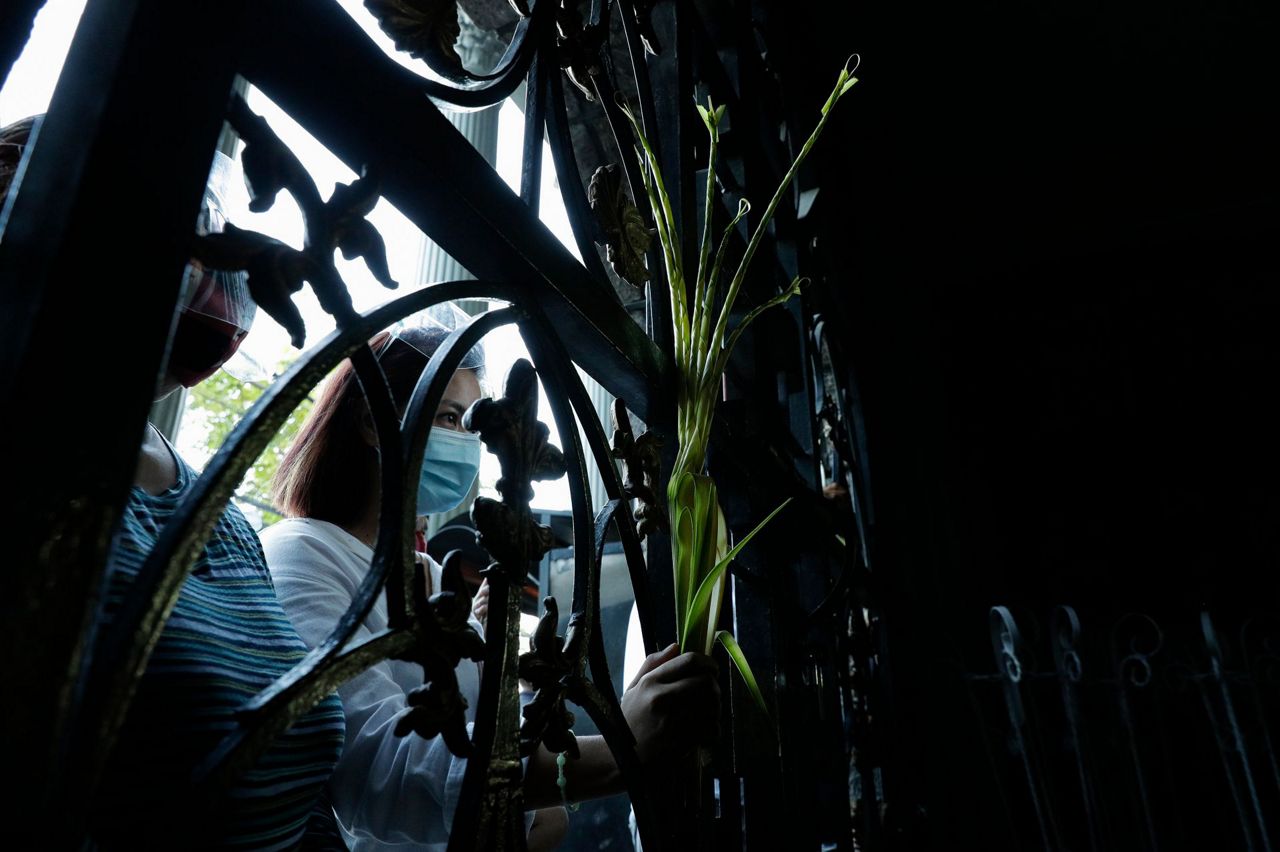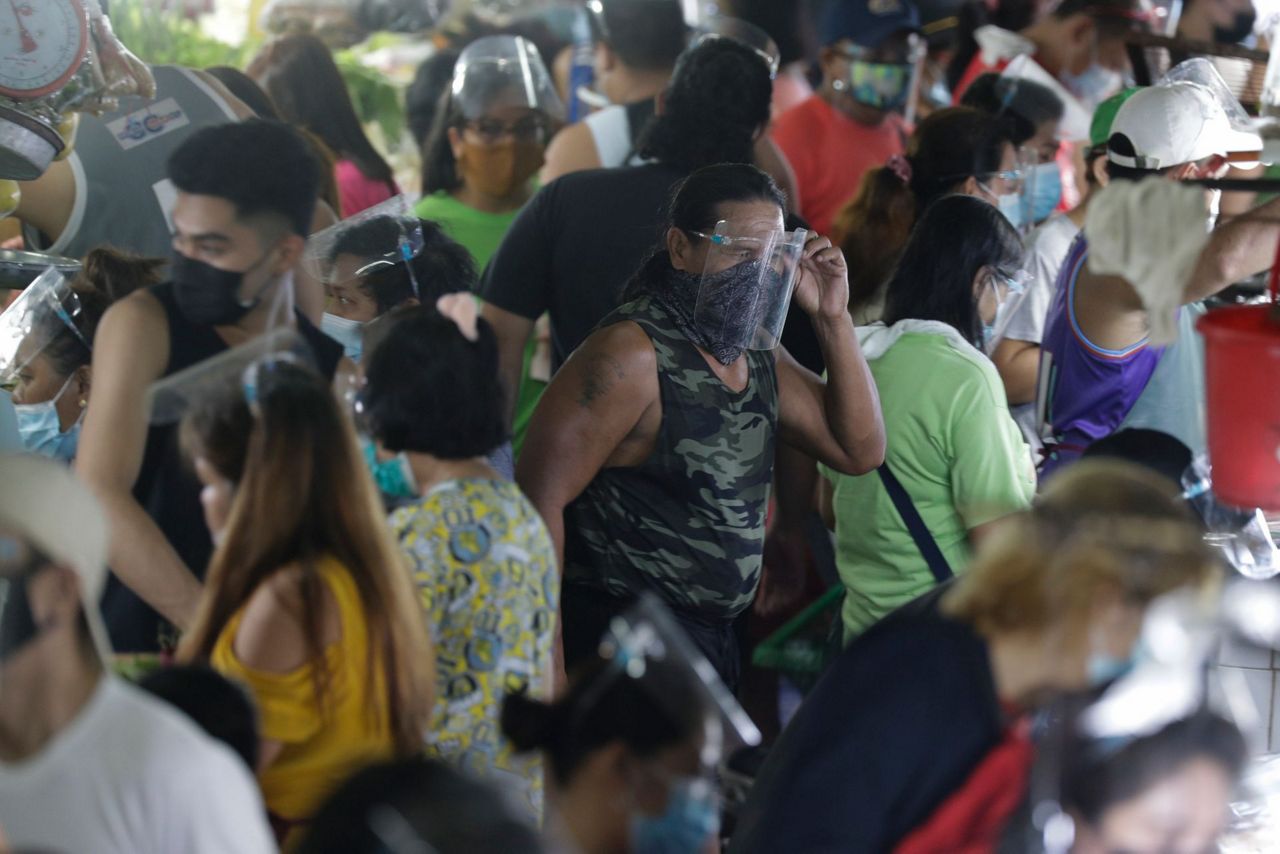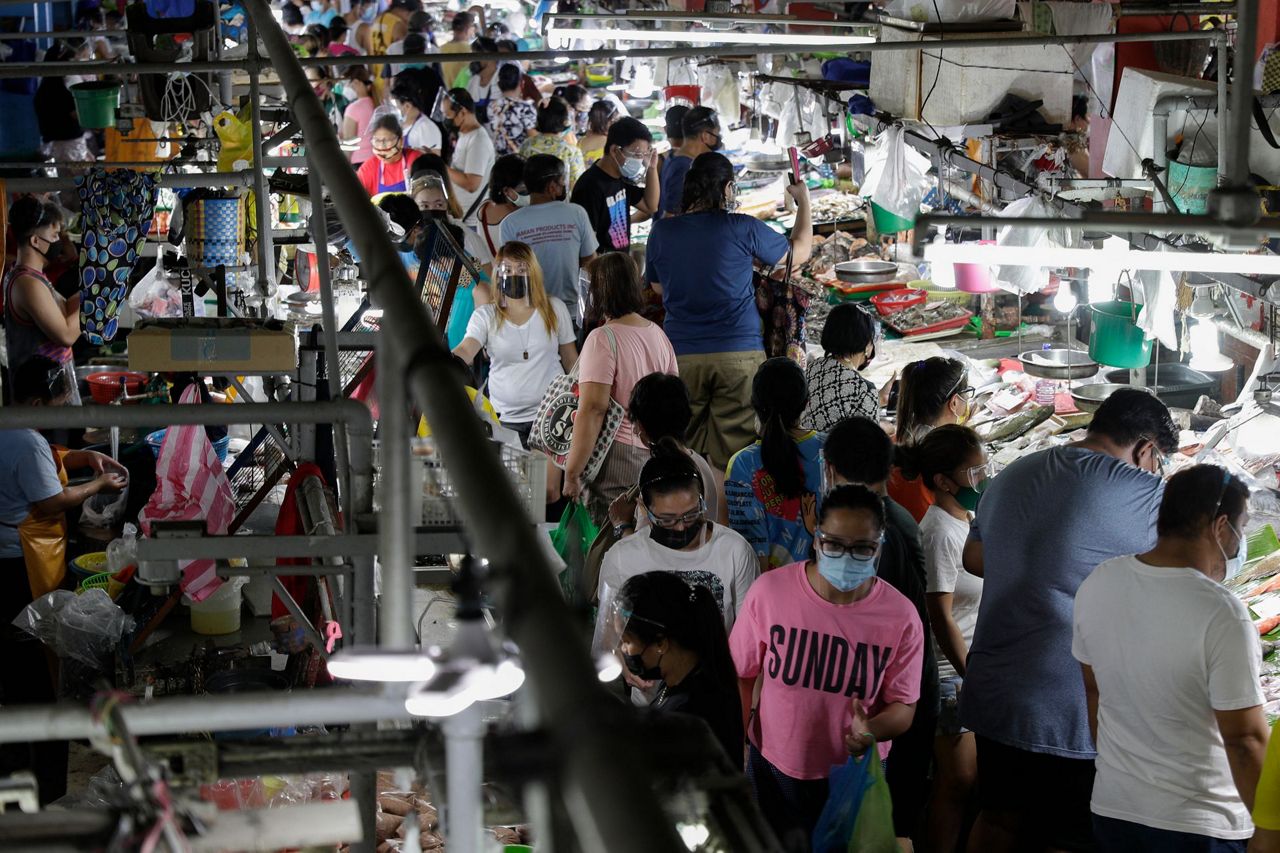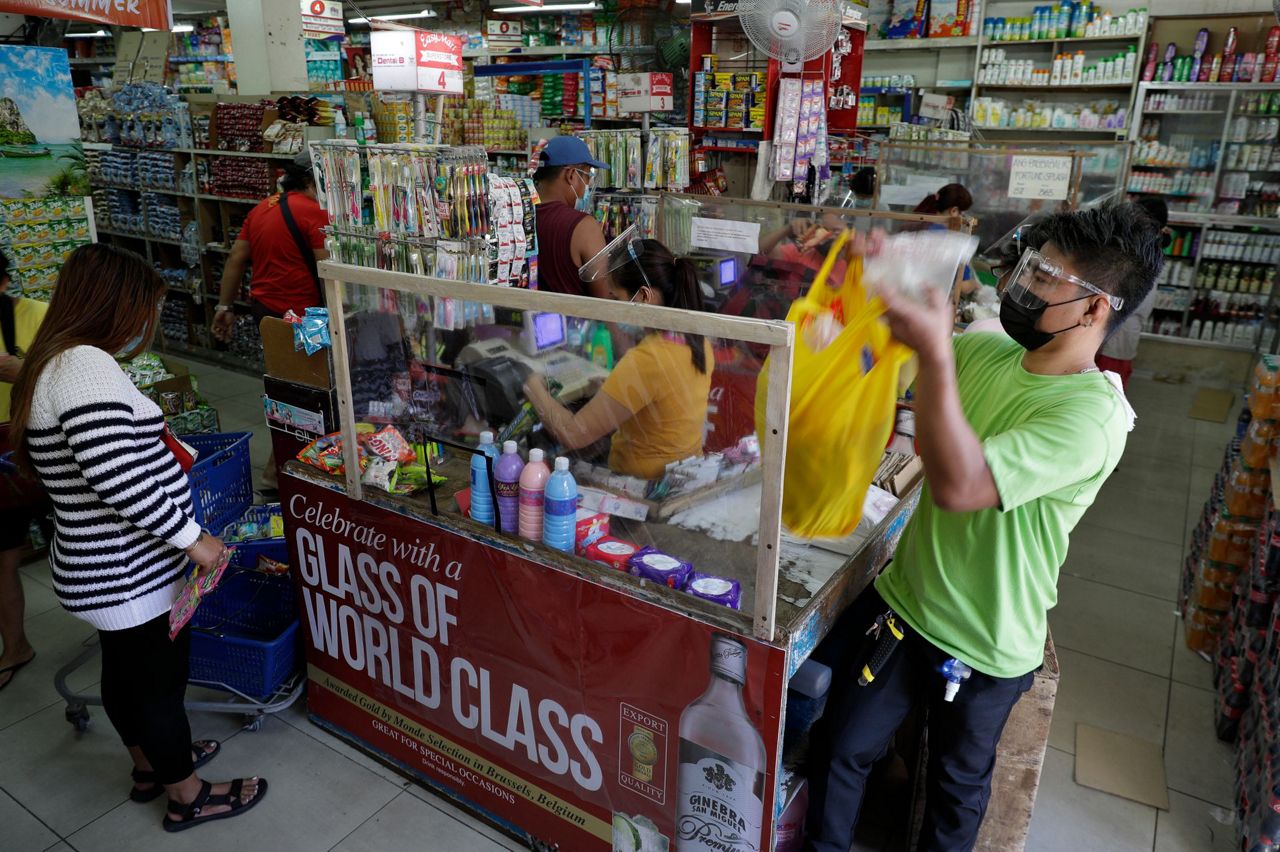MANILA, Philippines — Philippine officials placed Metropolitan Manila and four outlying provinces, a region of more than 25 million people, back to a lockdown Monday at the height of the Lenten and Easter holiday travel season as they scrambled to control an alarming surge in coronavirus infections.
Only workers, government security and health personnel and residents on urgent errands would be allowed out of homes during the weeklong restrictions, which prohibited leisure trips and religious gatherings that forced the dominant Roman Catholic church to shift all its Holy Week and Easter activities online. The renewed lockdown brought President Rodrigo Duterte’s administration under fire for what critics say was its failed handling of the pandemic.
A curfew in the capital region and the provinces of Bulacan,
Cavite, Laguna, and Rizal was also expanded to 11 hours starting at 6pm.
“The rule now is stay home,” presidential spokesman Harry Roque told ABS-CBN News. “If we don’t lock down again, our hospitals will be overwhelmed and the frontliners may not be able to help those who will seriously or critically get ill.”
The Philippines has imposed one of the world’s longest police- and military-enforced coronavirus quarantines and lockdowns, which caused the economy last year to contract by 9.5%, the worst economic setback since the Philippines began issuing such economic data just after World War II.
The World Bank has downgraded its economic growth forecast for the Philippines this year with one of its chief economists saying the country has been “less successful in the region in transitioning away from shutdowns to a more efficient containment strategy.”
The Philippines has reported more than 721,800 confirmed COVID-19 cases with 13,170 deaths, the second highest in Southeast Asia after Indonesia.
___
THE VIRUS OUTBREAK:
— UK variant hunters lead global race to stay ahead of COVID-19.
— Did COVID-19 stress, uncertainty stall anti-smoking push?
— Longest-serving bookseller among 25,000 Czech virus victims.
— UK to further ease lockdown; nervously eyes European virus surge
— Albania starts mass COVID vaccinations before tourist season
— Mexico’s real COVID-19 death toll now stands at over 321,000.
___
— Follow AP’s pandemic coverage at https://apnews.com/hub/coronavirus-pandemic, https://apnews.com/hub/coronavirus-vaccine and https://apnews.com/UnderstandingtheOutbreak
___
HERE’S WHAT ELSE IS HAPPENING:
BRISBANE, Australia — Australia’s third-largest city Brisbane will enter a three-day lockdown Monday evening after the coronavirus was found spreading in the community.
Queensland State Premier Annastacia Palaszczuk told reporters that health authorities had identified four new cases of community transmission overnight and the lockdown was necessary for them to get on top of contact tracing.
Australia has so far been largely successful in stamping out the spread of the virus. However, vaccination efforts have only just begun with less than 1% of the nation’s population vaccinated.
Authorities are requiring people in Brisbane to stay home except for essential purposes and to wear masks. Brisbane, the capital of Queensland state, is home to more than 2.5 million people.
___
BUCHAREST, Romania — A 104-year-old Romanian woman has received her second vaccine against COVID-19, becoming the oldest person in Romania’s capital of Bucharest to be fully inoculated.
Accompanied by family members into Bucharest’s Children’s Palace, Zoea Baltag, born in 1916, welcomed her second dose of the Pfizer vaccine and declared it the only way to combat COVID-19.
“A vaccine is the only way to get rid of this virus,” Baltag said.
The pandemic had forced the centenarian — whose granddaughter is a doctor and convinced her to get vaccinated — to spend around a year physically distancing from her close relatives,
“I missed very much my great-grandson, I want to see him growing up. I’ve not been able to be with my grandchildren because I stayed isolated from them until now in order to not risk catching the virus. Everyone in the family is vaccinated now we can now spend the holidays together,” she said.
Baltag, who was born two years before the Spanish Flu pandemic, appeared sharp of mind and did not report any side-effects after receiving her first Pfizer vaccine. She waited the usual 15 minutes after her second dose in case of any adverse effects.
___
BERLIN — Authorities in Austria say people living in much of the western region of Tyrol will need to take a coronavirus test before traveling elsewhere, because of concerns about variant cases detected there.
Officials said Sunday that in the Kufstein district of Tyrol there have been 216 confirmed cases of a virus variant first detected in Britain that has since gained a further mutation which could make it more resistant to vaccines.
The same mutation — known as E484K — is also found in variants first detected in South Africa and Brazil.
People wanting to leave Kufstein district will need to provide a negative PCR test result between March 31 and April 14.
___
PRISTINA, Kosovo — The first batch of AstraZeneca vaccines from the Covax facility arrived Sunday in Kosovo, the last country in the continent yet to start inoculation.
Authorities said they got 24,000 vaccines through the Covax system which will be used for medical personnel, elderly people and those with chronic diseases.
“We need much more and fast,” Prime Minister Albin Kurti told The Associated Press at the international airport after the arrival of the vaccines.
Kosovar health authorities have reported 87,981 total confirmed cases and 1,840 confirmed deaths from COVID-19 as of Monday.
___
PARIS — Critical care doctors in Paris say surging coronavirus infections could soon overwhelm their ability to care for the sick in the French capital’s hospitals, possibly forcing them to choose which patients to treat.
The sobering warning of “catastrophic medicine” was delivered Sunday in a newspaper opinion piece signed by 41 Paris-region doctors. Published by Le Journal du Dimanche newspaper, it comes as President Emmanuel Macron has been vigorously defending his decision not to completely lockdown France again as he did last year.
Since January, Macron’s government has instead imposed a nationwide overnight curfew and followed that with a grab-bag of other restrictions.
But with infections soaring and hospitals increasingly running short of intensive care beds, doctors have been stepping up pressure for a full lockdown.
The Paris-region doctors who wrote in Le Journal du Dimanche said: “We have never known such a situation, even during the worst (terror) attacks” that targeted the French capital.
The doctors predicted that softer new restrictions imposed this month on Paris and other regions won’t quickly bring the resurgent epidemic under control.
___
ROME — Police in Italy have been cracking down on violators of ordinances aimed at reining in what has been weeks of stubbornly high incidences of COVID-19 cases.
In Rome, where cafes, bars and restaurants can only provide take-out service, Carabinieri military police fined a bar owner 400 euros ($480) after they noticed three people drinking inside and closed it for five days.
Elsewhere in the Italian capital on Saturday night, seven party-goers at an apartment were fined for violating anti-COVID-19 measures. In the Sicilian town of Avola, police fined 17 celebrants, none of them wearing masks, at a birthday party in a home, the daily La Sicilia said.
For the Easter holiday next weekend, there is a nationwide limit of one visit per day, by no more than two adults, to the home of family of friends, although there is no limit of children younger than 14.
___
SKOPJE, North Macedonia — North Macedonia on Sunday got the first batch of 24,000 Oxford-AstraZeneca vaccines out of a total 100,000 that are expected to arrive through the COVAX system by April.
North Macedonian Health Minister Venko Filipce, accompanied by the U.S. and EU ambassadors, welcomed the vaccine shipment at the country’s main airport near the capital Skopje.
He said the first 20,000 people to be immunized are over 75s and the chronically ill. The vaccination process will start Wednesday.
The tiny Balkan country began inoculations a month ago with about 11,000 doses of Pfizer-BioNTech and Russian Sputnic V vaccines for medical workers.
At least 4,000 vaccine-seekers from North Macedonia flocked to neighboring Serbia on Saturday after Serbian authorities offered foreigners free coronavirus jabs.
North Macedonia has recorded more than 126,000 coronavirus cases and more than 3,600 deaths.
___
TIRANA — Albania started a mass inoculation campaign Sunday ahead of the summer tourism season after acquiring 192,000 doses of Chinese coronavirus vaccine Sinovac earlier this week.
Hundreds of people age 70 and above gathered at Tirana’s main Skanderbeg Square to get a jab in two big tents.
Liri Bizhiti, 76, one of those waiting in line, was happy to receive the vaccine after a year of isolation, and on the same day as her husband.
“Thank God it came,” she told The Associated Press while accompanied by her daughter. “We are so happy.”
Vaccination has proceeded slowly in the Balkan country since mid-January before the arrival of the Sinovac vaccine, with Albania receiving less than 100,000 Pfizer, AstraZeneca and Sputnik V doses. The country has inoculated 65,000 medical personnel, people age 80 and over, and schoolteachers so far.
—-
LONDON — Britain is taking another small step out of lockdown as it looks nervously at a new virus surge inundating its European neighbors.
With U.K. coronavirus vaccination rates outstripping those of European Union nations, Prime Minister Boris Johnson is easing the stark “stay at home” message that has kept the virus in check for almost three months.
From Monday, it will be replaced in England with a message to stay local. People will be allowed to meet in groups of six outdoors and can resume outdoor sports such as basketball, tennis and golf.
Stephen Powis, medical director of the National Health Service in England, urged people to continue to follow the rules, saying the easing “does not mean job done.” Britain has Europe's highest virus death toll, at over 126,000 people.
___
THE HAGUE, Netherlands — Dutch police have arrested a churchgoer for hitting and kicking a journalist who was reporting outside a service that was opened to a Protestant church’s full congregation.
Reporters were outside the Mieraskerk church in the town of Krimpen aan den Ijssel near Rotterdam when the incident happened Sunday. The church drew media attention after reports it had opened the service to its entire congregation despite a tough coronavirus lockdown and sharply rising infection rate in the Netherlands.
Police tweeted that a 43-year-old man was arrested after the incident Sunday. They added: “Let journalists do their work.”
Dutch media report that journalists also were threatened in the fishing town of Urk, where another church opened its doors Sunday.
Churches and other religious meeting places are exempt from lockdown rules. However, the government advises them to restrict attendances to a maximum of 30 people. A church official in Krimpen aan den Ijssel apologized after the incident.
___
WASHINGTON — A year after COVID-19 upended life for millions of Americans, there are troubling signs that the coronavirus may have also slowed progress against another deadly health threat: smoking.
Fewer smokers called quit-smoking hotlines last year and some smoked more, contributing to an unusual bump in cigarette sales — all in the middle of the stress, anxiety and uncertainty from the pandemic.
“It’s hard for folks to quit using tobacco in the best of times, so what happens when life is suddenly turned upside down?” said Jen Cash, who oversees Minnesota’s anti-tobacco programs.
Researchers are already concerned about COVID-19′s impact on cancer screenings and opioid overdoses as many Americans were cut off from routine care and examinations. But services to help smokers quit -- delivered via phone and online -- would seem well-positioned to withstand the disruptions of the pandemic. The programs help with devising a plan and often provide free nicotine gums and patches.
___
VATICAN CITY — Pope Francis is celebrating solemn Holy Week ceremonies for a second straight year without the usual throngs of pilgrims and tourists, kept away by pandemic safety concerns and travel restrictions.
Francis traditionally leads a Palm Sunday procession through St. Peter’s Square and then celebrates an outdoor Mass for tens of thousands of faithful.
But Francis led a Palm Sunday service this year inside St. Peter’s Basilica just as he did last spring. That was just weeks after the COVID-19 outbreak erupted in Italy, which was the first country in the West to be hit by the pandemic.
Only about 120 faithful, including nuns and a few families, attended and were socially-distanced. They wore protective masks as did participants in the procession of 30 red-robed cardinals, but Francis didn't use one.
___
LONDON — Even when there were just a few dozen confirmed cases of COVID-19 in the U.K., professor Sharon Peacock recognized that the country needed to expand its capacity to analyze the genetic makeup of the virus.
The Cambridge University microbiologist set about bringing scientists together to work on genomic sequencing. That has made Britain a world leader in finding new variants that are more dangerous or resistant to vaccines.
The initiative helped make Britain a world leader in rapidly analyzing the genetic material from large numbers of COVID-19 infections, generating more than 40% of the genomic sequences identified to date. These days, their top priority is finding new variants that are more dangerous or resistant to vaccines, information that is critical to helping researchers modify the vaccines or develop new ones to combat the ever-changing virus.
“They’ve shown the world how you do this,” said Dr. Eric Topol, chair of innovative medicine at Scripps Research in San Diego, California.
___
MEXICO CITY — Mexico’s government is acknowledging that the country’s true death toll from the coronavirus pandemic now stands above 321,000.
That is almost 60% more than the government’s official test-confirmed number of 201,429. Mexico does little testing, and because hospitals were overwhelmed, many Mexicans died at home without getting a test. The only way to get a clear picture is to review “excess deaths” and review death certificates.
The government quietly published such a report, indicating there were 294,287 deaths linked to COVID-19 from the start of the pandemic through Feb. 14. Since Feb. 15 there have been an additional 26,772 test-confirmed deaths.
___
NEW YORK — High rates of COVID-19 throughout New York have left the majority of its nursing homes closed for most indoor visits despite relaxed guidance meant to help open them up for visitors.
A little more than half of New York nursing homes were ineligible for indoor visits in mid-March. New York updated its visitation rules Thursday in a way that will now allow visits to resume under certain conditions, even if a resident has recently tested positive.
But that relaxed standard might not clear the way for visitation in many homes having trouble keeping the virus out.
Copyright 2021 The Associated Press. All rights reserved. This material may not be published, broadcast, rewritten or redistributed without permission.



